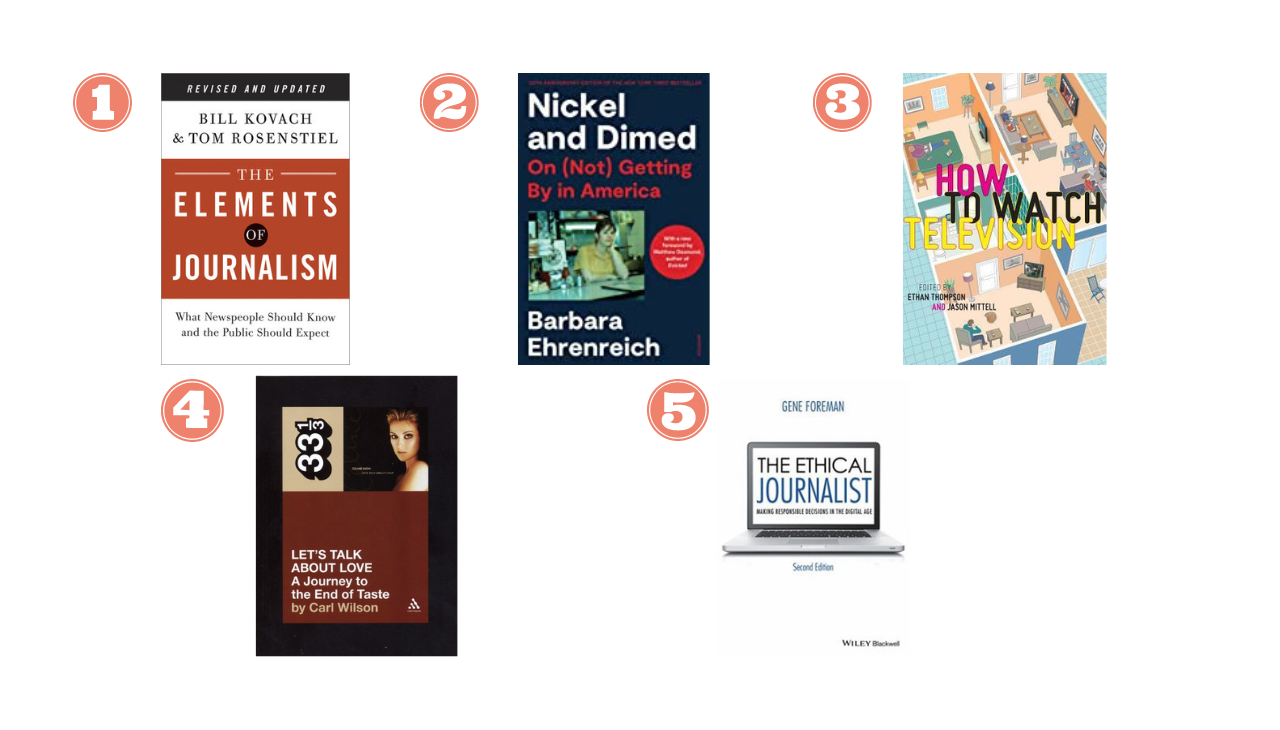
Top 5 Journalism Books recommendation for College Students
The Journalism Lab on Higher Education has a Top 5 Journalism Books for College Students with the aid of Michael D. Dwyer, Professor at Arcadia University
College students face many challenges along the way— increased responsibilities, student debt, time management, failing a class, being homesick, only adds to the already stressful collegiate environment.
Michael D. Dwyer, Associate Professor of Media and Communication at Arcadia University states “many students feel somewhat insecure about their ability to analyze or create media ‘at the college level’ because they don't yet know what that means (and the truth is that it means different things for everyone!).” Whether you are pursuing a media or communication degree, college students will all agree that some of the challenges remain the same. This is why students should utilize office hours, ask questions, or find resources within the college to alleviate some of the transitional burdens.
Whether pursuing an undergraduate or graduate degree, it is important to read as much as you can, especially if pursuing a media, communication, or writing degree. “I especially remember reading Zola's Germinal and Frank Norris' The Octopus, Jean Anouilh's adaptation of Antigone, and Philip Caputo's A Rumor of War,” explains Professor Dwyer. “As a graduate student I came into contact with cultural studies — the work of Raymond Williams and Stuart Hall remains very important to me.”
The idea is to read various texts from different genres beyond those of interest because those resources will sharpen your skills and understanding of the outside world.
Higher education is extremely important for underrepresented communities, especially individuals interested in pursuing a media or communication degree who might not be accustomed to reading work by Steven Cohan, Richard Dyer, and Barbara Klinger—film studies scholars.
“The importance of higher education writ large is to bring people of different backgrounds and different experiences together to challenge themselves to learn, grow, change, develop, disagree and cooperate,” Professor Dwyer explains. “It is important for all the members of a university community, for the student body, the faculty and the staff to not only be diverse, but also to feel stable and welcome enough on campus to participate in university life as vibrantly and as fully as possible. Because there are so many inequities in the world in general, I think it is important for universities to strive to combat those inequities, if for no other reason than to illustrate that communities can actively choose to be more inclusive and be more just.”
Students will be more likely to foster positive learning habits if the environment offers diversity, inclusivity, and equity—promoting real growth and a safe space for students to learn.
Professor Dwyer wants first year students to “proactively build a support network on campus before you need it.”
Students should aim to familiarize themselves with the campus, the tutoring center, professors, advisors, and “to try to develop relationships with students in their classes and living spaces (or teams, or cohorts, or whatever). Being a young person is difficult, being in a new context like a university is difficult, entering a new academic field or discipline is difficult,” Professor Dwyer explains. “All that stuff is even more difficult if you feel like you're doing it alone. So making a little effort to make some connections early on can be a great help - those people don't need to be your lifelong friends yet, but just a little bit of a ‘shock absorber’ for the bumps along the way.”
The more accustomed you become to your surroundings and the new environment you are in, those critical skills a journalist needs will develop.
Below you will find the Top 5 Journalism Books for College Students Recommendation:
TOP 5 JOURNALISM BOOKS
1. The Elements of Journalism: What Newspeople Should Know and the Public Should Expect by Bill Kovach and Tom Rosenstiel
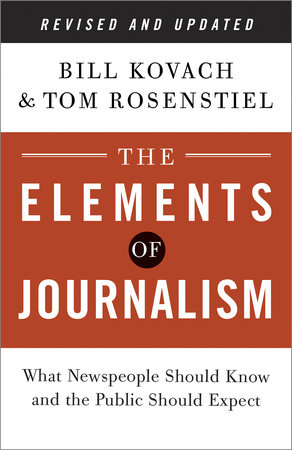
Book Description
Seventeen years ago, the Committee of Concerned Journalists gathered some of America’s most influential news people to ask the question, “What is journalism for?” Through exhaustive research, surveys, interviews, and public forums, they identified the essential elements that define journalism and its role in our society. The result is this, one of the most important books on the media ever written, and winner of the Goldsmith Book Award from Harvard, the Society of Professional Journalists award, and the Bart Richards Award from Penn State University.
Updated with new material covering the rise of social media, sponsored content, a new, collaborative web-based journalism in which anyone—professional or citizen—can produce news, and much more, this third edition of The Elements of Journalism is an essential read for journalists, students, and anyone hoping to stay informed in the digital age.
Provides a comprehensive list of elements of journalism which are:
- Journalism’s first obligation is to the truth.
- Its first loyalty is to citizens.
- Its essence is a discipline of verification.
- Its practitioners must maintain an independence from those they cover.
- It must serve as an independent monitor of power.
- It must provide a forum for public criticism and compromise.
- It must strive to make it significant, interesting and relevant.
- It must keep the news comprehensive and proportional.
- Its practitioners must be allowed to exercise their personal conscience.
College Students will be able to use this book as a reference to ‘good journalism.’ A guide to innovative approaches and understanding your audience as a journalist. Also, understanding the importance of journalistic ethics.
Professors who recommend this book:
- Adrianne Flynn, University of Maryland
- Mark Stencel, Duke University
Newsroom members who recommended this book:
- Jensen Toussaint, Deputy Leadership Editor
- Nigel Thompson, Digital Editor
- Carlos Nogueras, Political Journalist and Reporter
- Alan Nuñez, Political Journalist and Reporter
- Renata Kaminski, Education Journalist and Reporter
- Jennifer Hernandez, Education Journalist and Reporter
- Eliot Olaya, Leadership Journalist and Reporter
2. Nickel and Dimed by Barbara Ehrenreich

Book Description
Millions of Americans work full-time, year-round, for poverty-level wages. In 1998, Barbara Ehrenreich decided to join them. She was inspired in part by the rhetoric surrounding welfare reform, which promised that any job equals a better life. But how can anyone survive, let alone prosper, on $6-$7 an hour? To find out, Ehrenreich moved from Florida to Maine to Minnesota, taking the cheapest lodgings available and accepting work as a waitress, hotel maid, house cleaner, nursing home aide, and Wal-Mart salesperson. She soon discovered that even the "lowliest" occupations require exhausting mental and physical efforts. And one job is not enough; you need at least two if you intend to live indoors.
Nickel and Dimed reveals low-wage America in all its tenacity, anxiety, and surprising generosity--a land of Big Boxes, fast food, and a thousand desperate stratagems for survival. Instantly acclaimed for its insight, humor, and passion, this book is changing the way America perceives its working poor.
According to Michael D. Dwyer, Associate professor of Media and Communication at Acadia University, is ideal for students interested “in long-form journalistic writing that’s deeply embedded in research and has sincere political and ethical conviction.”
College Students will be able to use this book to uncover unethical practices and issues with low-wage workers' ability to afford benefits.
Newsroom members who recommended this book:
- Jennifer Hernandez, Education Journalist and Reporter
3. How to Watch Television by Ethan Thompson and Jason Mittell
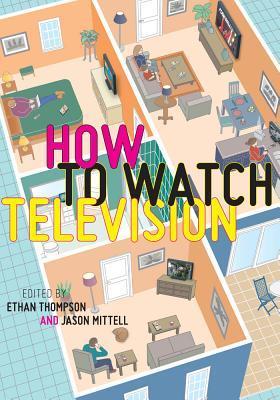
Book Description
We all have opinions about the television shows we watch, but television criticism is about much more than simply evaluating the merits of a particular show and deeming it 'good' or 'bad.' Rather, criticism uses the close examination of a television program to explore that program's cultural significance, creative strategies, and its place in a broader social context.
How to Watch Television brings together forty original essays from today's leading scholars on television culture, writing about the programs they care (and think) the most about. Each essay focuses on a particular television show, demonstrating one way to read the program and, through it, our media culture. The essays model how to practice media criticism in accessible language, providing critical insights through analysis--suggesting a way of looking at TV that students and interested viewers might emulate. The contributors discuss a wide range of television programs past and present, covering many formats and genres, spanning fiction and non-fiction, broadcast and cable, providing a broad representation of the programs that are likely to be covered in a media studies course. While the book primarily focuses on American television, important programs with international origins and transnational circulation are also covered.
Addressing television series from the medium's earliest days to contemporary online transformations of television, How to Watch Television is designed to engender classroom discussion among television critics of all backgrounds.
Ethan Thompson is Associate Professor at Texas A&M University - Corpus Christi. He is the author of Parody and Taste in Postwar American Television Culture, and co-editor of Satire TV: Politics and Comedy in the Post-Network Era.
Jason Mittell is Associate Professor of Film & Media Culture and American Studies at Middlebury College. He is the author of Genre and Television: From Cop Shows to Cartoons in American Culture, Television and American Culture, and Complex TV: The Poetics of Contemporary Television Storytelling (New York University Press, forthcoming).
According to Michael D. Dwyer, Associate professor of Media and Communication at Acadia University, students interested in media analysis will benefit from this book because it “is a great introduction to the ways that media studies teaches us to treat the things that many people think of as ‘just entertainment.’”
College Students will be able to use this book to understand ideology, technology, stereotypes by engaging in thoughtful analysis of various perspectives.
Newsroom members who recommended this book:
- Jennifer Hernandez, Education Journalist and Reporter
4. A Journey to the end of taste by Carl Wilson
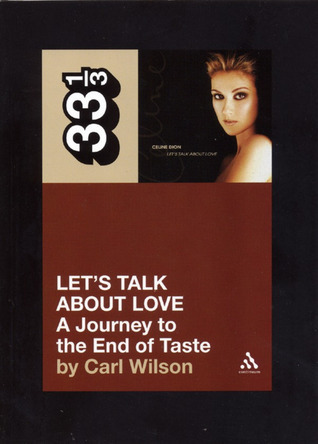
Book Description
Non-fans regard Céline Dion as ersatz and plastic, yet to those who love her, no one could be more real, with her impoverished childhood, her (creepy) manager-husband's struggle with cancer, her knack for howling out raw emotion. There's nothing cool about Céline Dion, and nothing clever. That's part of her appeal as an object of love or hatred — with most critics and committed music fans taking pleasure (or at least geeky solace) in their lofty contempt. This book documents Carl Wilson's brave and unprecedented year-long quest to find his inner Céline Dion fan, and explores how we define ourselves in the light of what we call good and bad, what we love and what we hate.
According to Michael D. Dwyer, Associate professor of Media and Communication at Acadia University, this book will be a great addition to students interested in “how we use media, and ‘taste’ in media as a way to categorize people.”
College Students will be able to use this book to understand taste—their respective ideas of taste and what might contribute to such mentality. This is a thought-provoking read that will leave you wondering why do we like what we like? And recognizing what ‘taste’ is all about, which Wilson writes, ‘is a means of distinguishing ourselves from others, the pursuit of diction. In early twenty-first-century terms, for most people under fifty, distinction boils down to cool.’
Newsroom members who recommended this book:
- Nemesis Mora, Deputy Education Editor
- Jennifer Hernandez, Education Journalist and Reporter
5. The Ethical Journalist: Making responsible Decisions in the Digital Age by Gene Foreman
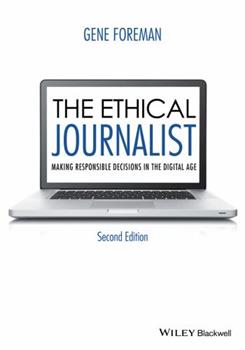
Book Description
This new edition of a well-regarded, student-friendly textbook for journalism ethics has been extensively revised and updated to meet the needs of the 21st century journalist working in the digital age.
Educates aspiring journalists on ethical decision-making, with coverage of key applied issues such as the principles of fairness and accuracy, the duty of verification, the role of social media, the problems of plagiarism, fabrication, and conflicts of interest, business issues that affect journalism ethics, and questions relating to source relationships, privacy, and deception in reporting
Includes extensive revisions to the majority of chapters, as well as six new “Point of View” essays, eight new case studies, and a full glossary
RELATED CONTENT
Brings together the authoritative, engaging voice of a veteran journalist, the viewpoints of distinguished scholars and print, broadcast, and digital practitioners, and insights from complex, real-world case studies
Supplemented by an annually updated companion website with resources for teachers and students, including: links to current articles discussing the subjects covered in each of the book’s chapters, and a teachers’ guide that offers sample syllabi, discussion guides, PowerPoint slides, sample quiz and exam questions, and links to audiovisual material
College Students will be able to use this book to understand the accuracy, objectivity, and truth associated with journalism.
Professors who recommend this book:
- Megan Craig, Syracuse University
- Raymond McCaffrey, University of Arkansas
Newsroom members who recommended this book:
- Jennifer Hernandez, Education Journalist and Reporter
- Nigel Thompson, Digital Editor
Al Día Newsroom members had a few recommendations of books that influenced their studies or were of great help navigating their respective programs.
Here are the top 5 choices:
1. Evicted by Matthew Desmond
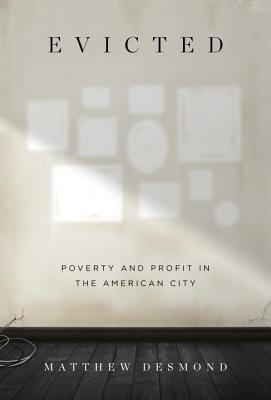
College Students will be able to use this book to understand the sociological impact of poverty and the effects of eviction in an already vulnerable population. This book will touch your heartstrings and make you understand the issues with the judicial system.
Newsroom member who recommended this book:
- Nigel Thompson, Digital Editor
2. The New Jim Crow by Michelle Alexander
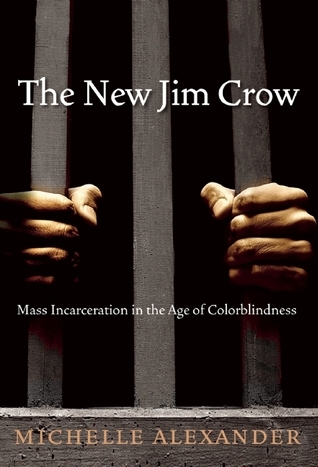
College Students will be able to use this book if interested in understanding the American criminal justice system and how it was not designed to reform criminals. Also, the effects of mass incarceration, and how felons are excluded from public housing, welfare, employment opportunities (excluded because of record), and how their rights are violated in a form of retaliation for past transgressions.
Newsroom member who recommended this book:
- Nigel Thompson, Digital Editor
3. Homicide by David Simon
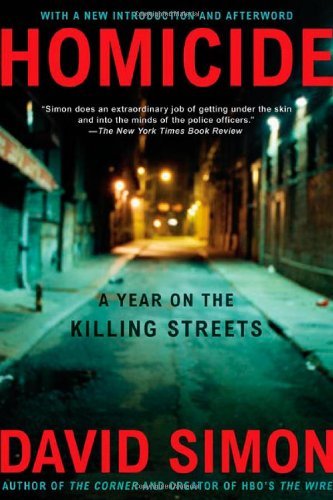
College Students will be able to use this book to understand journalistic reportage and the psychological complexities involved in investigative journalism.
Newsroom member who recommended this book:
- Nigel Thompson, Digital Editor
4. The Associated Press Stylebook
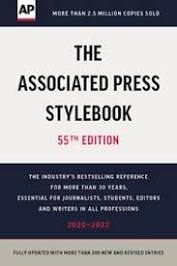
College Students will be able to use this book as a reliable informative resource that provides the guidelines to using AP style. This resource is good for writers as well.
Newsroom members who recommended this book:
- Carlos Nogueras, Political Journalist and Reporter
- Jennifer Hernandez, Education Journalist and Reporter
5. Writing and Editing for Digital Media by Brian Carroll
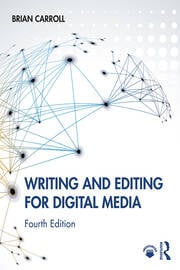
College Students will be able to use this book to understand communication media and how to effectively communicate in different digital spaces.
Newsroom members who recommended this book:
- Jensen Toussaint, Deputy Leadership Editor
- Jennifer Hernandez, Education Journalist and Reporter










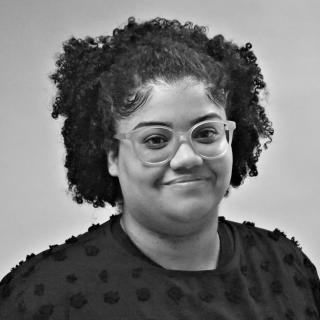
LEAVE A COMMENT:
Join the discussion! Leave a comment.